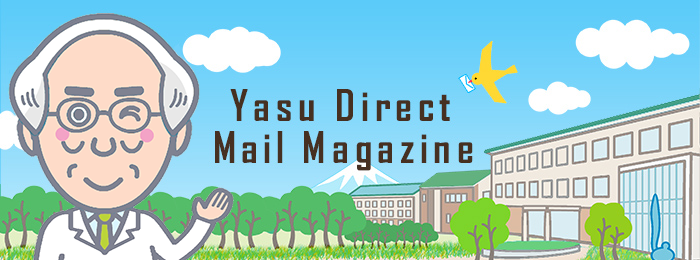No. 8 (January 19, 2016)


Yasu Direct Mail Magazine No. 8 (January 19, 2016)
Happy New Year, SOKENDAI students! Are you doing well?
Most of you are involved in Inter-University Research Institutes, which form the finest research environments in Japan and some of the finest in the world. If you just keep a strong motivation as you apply yourself to your studies and research, the path to become an outstanding researcher or scientist will open for you.
There are several conditions necessary for maintaining strong motivation. One is the ability to give up on alternate paths of interest, assuming one is not a multitalented genius. All people, when they are young, are drawn to many interests, especially people with high potential. They tend to get involved with more than one. But all of you who intend to become leading researchers with outstanding expertise and broad perspectives and then get into SOKENDAI had to give up other paths to focus on research and the necessary study for a time. This probably does not apply only to researchers, as is made clear by Dr. Hayao Kawai (Note 1) in his last book, " Watashi ga Kataritsutaetakatta Koto (What I Wanted to Say)". Kawai explains that, for young people to form selves, to establish their "ego-identities," as he puts it, requires the strength to give up. He says, "To choose one thing requires a resignation that one will abandon something else in exchange. One who lacks this resignation is unable to form an ego-identity." That said, this point is especially critical when advancing on the path of research.
Another condition necessary for maintaining strong motivation is the maintenance of physical and mental health. The secrets to maintaining physical health are not really so secret: one must simply eat normally (especially, breakfast is most important), live regularly, sleep sufficiently, and exercise appropriately (especially, one should walk often). In addition to these, there are two practices I have stuck to for a long time which I believe to be very important: handwashing and gargling. I do these not only when I get up and when I bathe, but every time I return home, even if I was only out for a short time. This prevents colds in most cases. Furthermore, in my seventy-two years, I have never had a major illness or been hospitalized. I have developed frozen shoulder (scapulohumeral periarthritis) and low back pain (spinal disc herniation) from always bending over for desk work and electrophysiological experiments, but I have beat these conditions by every morning and night without fail doing exercises for stiff shoulders and low back pain (for me, the McKenzie Method and abdominal exercise). For mental health, the really important things are just to live honestly and, as Dr. Iwao Ohmine (Note 2) often tells us, to "enjoy everything" (Note 2). Everyone goes through some trials, but the thing is to take them as preparation for developments to come. If you find something you just can't solve by yourself, don't bottle it up, but talk about it with friends or academic supervisors or with your department advisor or the counseling service in Hayama. For international students, since last December counseling conducted in English has been made available through a third party, TELL Counseling, which offers counseling in person, by telephone, and by Skype.
A healthy mind and body, a firm identity as a researcher, and a strong sense of motivation work together to form a trinity. I sincerely pray that this will be an excellent year for all of you in terms of your career paths. Until the next issue!
PS: We support excellent degree research by SOKENDAI students aiming to be researchers or scientists with the SOKENDAI Future Scientist Award. This year, the second entry period has ended, but we have only received four entries. We hope for many students to enter next time.
Note 1: SOKENDAI emeritus professor, former director of the International Research Center for Japanese Studies
Note 2: Chair of the Department of Structural Molecular Science and Director-General at the Institute for Molecular Science
